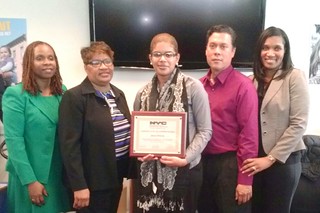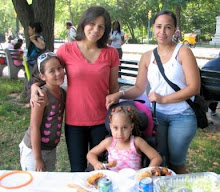The 2014-2015 state budget recently adopted under the leadership
of Governor Cuomo will provide individuals with developmental disabilities new
opportunities for community integration and enhance the safety of individuals
we serve, while also providing significant enhancements for the staff that work
directly with individuals.
The budget provides a 2% compensation increase for direct support
professionals (DSPs) working for nonprofit providers effective January 1,
2015, and provides an additional 2% increase for DSPs and clinical staff
beginning April 1, 2015. The budget also provides funding to design a DSP
credentialing program to explore opportunities to improve the skills and
compensation for both state and voluntary sector DSPs.
Safe handling measures have been included in the budget to protect
the individuals we serve from being injured during transfers and reduce
injuries suffered by staff, prolonging their careers. Under this new law, the
Department of Health will establish a Safe Patient Handling workgroup by
January 1, 2015 to study best practices in safe handling; thereafter each
covered facility would establish a committee by January 1, 2016 to establish
safe patient handling policies which would be required to be in effect by
January 1, 2017.
An
$88 million increase in state and federal Medicaid matching funds is included
in the budget to support individuals and families entering the OPWDD service
delivery system, or requiring an enhanced array of services, and to help individuals
transition from institutional programs into community settings. Tax
credits are also provided for businesses who hire individuals with
developmental disabilities.
For
individuals seeking greater independence, the expansion of the Nurse Practice
Act exemption to non-certified settings will significantly expand supports
available to help individuals work in the community, and live where and with
whom they want. The budget also establishes an independent advocacy program to
help individuals with developmental disabilities navigate managed care, and
help ensure their rights are respected and appropriate services are delivered.
These budget investments will help strengthen the system of
support for individuals with developmental disabilities as we continue to
transition individuals to appropriate community opportunities.











